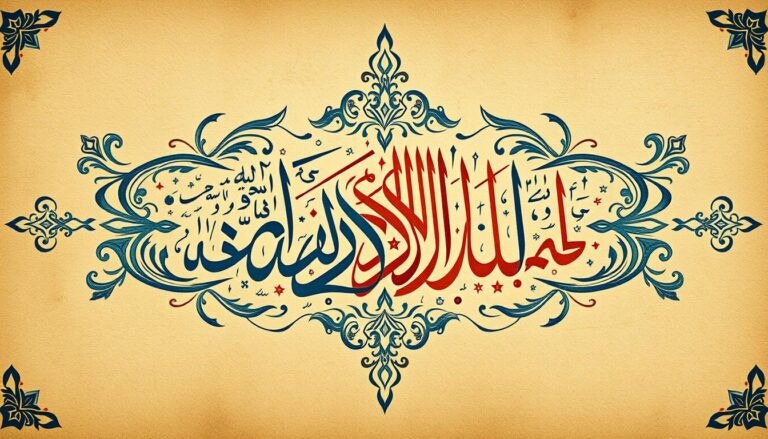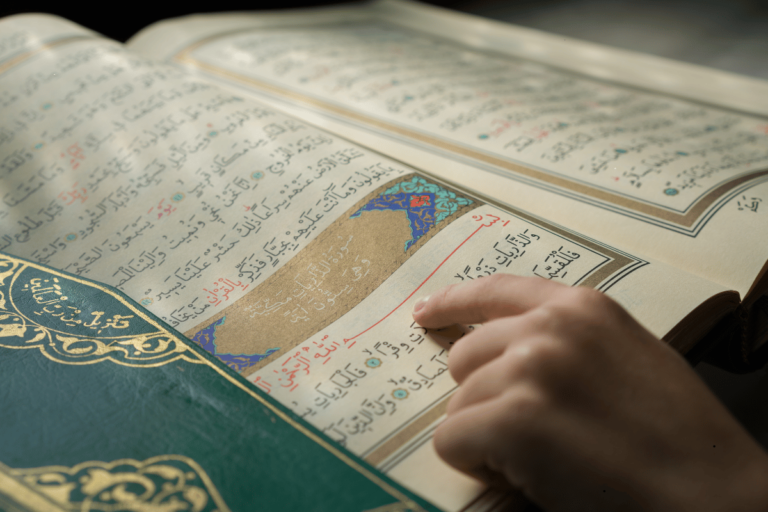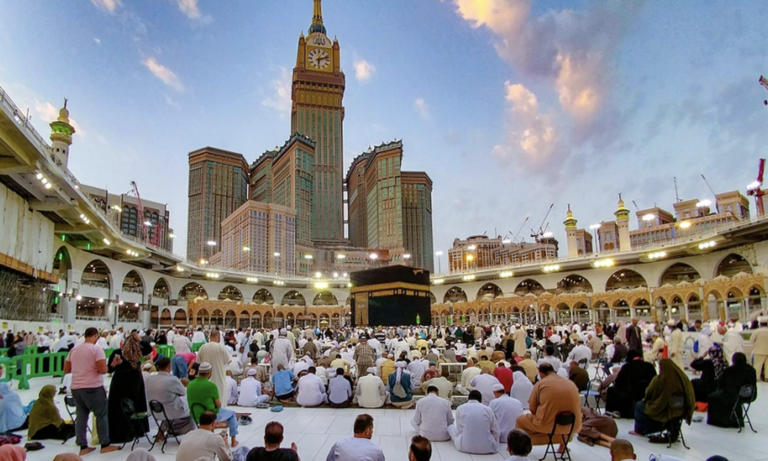The Healing Power of Prayer and Fasting: Islamic Insights
Have you ever thought about the deeper meaning of prayer and fasting? Islamic insights show us the healing power behind these acts. Ramadan, the fasting month, is a time for spiritual and physical renewal.
Faith and devotion are key in Islam. Prayer and fasting are its pillars. They help connect us with the divine and improve our health.
Recent studies highlight the benefits of prayer and fasting. For example, 57% of studies on distant healing found positive effects. This shows prayer’s power may reach beyond the spiritual to the physical.
Ramadan fasting brings many health benefits. It improves metabolism and mental focus. Exploring Islamic views on prayer and fasting reveals their power to transform body and soul.
Key Takeaways
- Islamic insights reveal the healing potential of prayer and fasting
- Ramadan offers a unique opportunity for spiritual and physical rejuvenation
- Studies suggest prayer may have tangible effects on health outcomes
- Fasting in Islam is viewed as a form of “charity with the body”
- Islamic practices emphasize moderation in eating and lifestyle habits
Understanding Ramadan: The Sacred Month of Fasting
Ramadan is a special month in Islamic traditions. It’s a time for Muslims to grow closer to their faith. They fast from dawn to dusk, a key part of Islam.
The Spiritual Significance of Ramadan
Ramadan is a time for spiritual growth and self-improvement. Muslims pray more and do good deeds, knowing they are rewarded more. It’s a month for deep thinking and connecting with the Quran.
Quranic Foundations for Fasting
The Quran teaches the importance of fasting in Ramadan. It says fasting helps believers become better. It cleanses the soul and brings them closer to Allah. In Ramadan, Muslims focus more on the Quran, calling it the Holy Quran month.
Historical Context of Ramadan
Fasting has been a part of many religions for centuries. In Islam, Ramadan marks the start of the Quran’s revelation. It guides believers and proves the truth of Islam. Fasting in Ramadan has been a Muslim tradition since the early days.
“Ramadan Mubarak” – a common greeting during this holy month, wishing blessings and prosperity.
Ramadan changes life in many ways, from personal growth to social events. Businesses sell more halal food and Islamic books. The month ends with Eid, a time of joy and celebration.
The Spiritual Dimensions of Islamic Fasting
Islamic fasting is more than just not eating. It opens the door to spiritual renewal and a closer bond with Allah. During Ramadan, Muslims focus on self-reflection, prayer, and reading the Quran. This helps them find inner peace and grow in faith.
Fasting teaches self-control and understanding for those in need. It pushes believers to face their inner battles and grow as individuals. Feeling thankful during this time brings contentment and spiritual growth.
“Secrets of Divine Love” offers a masterful map of the soul’s journey home to the Divine.
In Islam, seeking knowledge and reflecting on it is key to gaining wisdom. Practices like Dhikr, forgiveness, and connecting with nature help with spiritual health. It’s important to keep things balanced to avoid spiritual unrest from too much.
- Over 1.4 billion Muslims worldwide celebrate Eid al-Fitr
- Ramadan lasts 29 or 30 days, based on the lunar calendar
- Muslims read the entire Qur’an during this month
Prayer is the foundation for spiritual nourishment, leading to a deep bond with the divine. By embracing these practices, Muslims find peace and experience deep spiritual growth during Ramadan.
Physical Benefits of Ramadan Fasting
Ramadan fasting brings many health benefits. It’s not just for the soul but also for the body. Let’s look at how fasting in Ramadan can boost your health.
Autophagy and Cellular Rejuvenation
Fasting starts a process called autophagy. It’s like a clean-up for your cells. This helps prevent diseases and can make you live longer. During Ramadan, your body gets to fix and refresh itself at a deep level.
Metabolic Reset and Improved Insulin Sensitivity
Ramadan fasting can also reset your metabolism. Research shows it makes your body better at handling sugar. This can lower your risk of diabetes and help you manage energy better.
Weight Management and Body Composition
Many people see positive changes in their bodies during Ramadan. They often lose weight and have less body fat. A study in the Annals of Nutrition Metabolism found that fasting during Ramadan can make your body composition better.
- Clearer skin
- Improved digestion
- Better cardiovascular health
- Reduced systemic inflammation
These health benefits match Islamic teachings on caring for your body. While fasting has many benefits, it’s important to eat well when you’re not fasting for the best health.
Mental and Emotional Wellbeing Through Fasting
Ramadan fasting is a way to find mental peace and inner calm. Studies show that reciting the Quran can lower anxiety, stress, and depression. This practice helps build self-discipline and emotional control, leading to better self-awareness.
Fasting also improves heart health by lowering blood pressure and cholesterol. It gives the digestive system a rest, helping repair the gut lining. These physical benefits help improve mental health and spiritual renewal.
The sense of community in Ramadan boosts emotional health. Many people find their focus and thought clarity improve during this time. However, those with mental health issues face challenges:
- 45% of bipolar patients experience episodes despite stable medication
- Some face irritability, decreased sleep, and anxiety
- Stigma in Muslim communities can hinder access to spiritual fulfillment and healthcare
Islamic teachings advise seeking medical help. Those who are ill during Ramadan can choose not to fast or feed the poor instead. Talking to a doctor and an Imam helps make the right choice between fasting and health needs.
“Fasting is not just about abstaining from food, but a journey towards inner peace and spiritual growth.”
Prayer and Meditation During Ramadan
Ramadan is a special month in Islamic traditions. It’s a time for spiritual growth. Muslims all over the world pray and meditate, seeking a closer connection with the divine.
Increased Focus and Mindfulness
During Ramadan, Muslims focus on “muraqabah,” a mindfulness practice. It helps them stay aware of Allah’s presence. Sheikh Al-Tuwayjiri says this mindfulness is the highest level of faith.
Deepening Spiritual Connection
Prayer and meditation in Ramadan deepen spiritual connections. Ibn Al-Qayyim says “muraqabah” is about understanding Allah’s names. This leads to peace and strengthens the bond with the divine.
Communal Aspects of Prayer
Ramadan prayer is often done together. Muslims come together for nightly Tarawih prayers. This builds unity and strengthens faith. The American Psychological Association says such practices improve relationships and reduce stress.
“Muraqabah leads to a state of tranquil calm and contentment in life, with the means leading to stillness being acquired through the servant’s practice of ‘muraqabah’ for Allah.”
Ramadan prayer and meditation are transformative. They combine personal reflection with community worship. This enhances spiritual well-being and strengthens Muslim communities worldwide.
The Healing Power of Prayer and Fasting: Islamic Insights
Prayer and fasting are key in Islam. They help with spiritual growth and mental health. People all over the world do these during Ramadan to clean their souls and grow their faith.
Islam believes prayer and fasting can change lives. Many Muslims say they’ve beaten addictions, fixed relationships, and found peace in Ramadan. This month is a time for personal and spiritual growth.
Islamic prayer, or Salah, is done five times a day. It connects people with Allah and also helps their bodies. Research shows it can make bones stronger and lower disease risks.
“Prayer is the cornerstone of faith, and fasting is the shield against temptation.”
Fasting in Ramadan is more than just not eating. It’s a way to care for the body and soul. It can make the body healthier, improve blood sugar, and help with weight. It also makes people more mindful and disciplined.
- Prayer enhances focus and spiritual connection
- Fasting promotes physical health and self-control
- Combined, they offer a path to holistic healing
Prayer and fasting in Islam do more than help individuals. They bring people together, creating unity and purpose. The shared experience of Ramadan brings joy and kindness to the Muslim world.
Fasting as a Tool for Self-Discipline and Character Building
Fasting in Islamic traditions is a powerful tool for spiritual growth and character building. During Ramadan, Muslims abstain from food, drink, and other needs from dawn to sunset. This practice helps them control their desires and grow in faith and devotion.
Fasting has benefits beyond religion. Almost half of the US population struggles with sleep issues, linked to organ health. Fasting lets the body rest, detoxify, and heal, improving health and sleep.
Fasting gives time for deeper pursuits and makes meals more special. It combines physical health with spiritual growth, offering a complete experience. This aligns with Islamic traditions that value self-control and discipline.
“Fasting is a shield with which a servant protects himself from the Fire.” – Prophet Muhammad
The discipline from fasting lasts beyond Ramadan, improving self-control and moral character. Many Muslims feel more patient, empathetic, and grateful after fasting. This change supports spiritual rejuvenation and strengthens faith and devotion.
- Develops self-discipline
- Enhances moral character
- Increases patience and empathy
- Fosters gratitude
By using fasting for self-improvement, Muslims follow their faith and gain valuable life skills. This practice shows the power of Islamic traditions in shaping character and promoting spiritual growth.
Nutritional Insights for Healthy Ramadan Fasting
Ramadan fasting is practiced by 1.8 billion Muslims worldwide. It requires careful attention to nutrition. Islamic insights and religious practices highlight the importance of physical health during this month. Let’s look at some key nutritional strategies for a healthy Ramadan fast.
Balanced Suhoor Meals
The pre-dawn meal, suhoor, is key for energy throughout the day. Choose high-protein meals with whole grains to stay fueled. Include complex carbs, lean proteins, and healthy fats in your suhoor to keep blood sugar steady.
Hydration Strategies
Staying hydrated is crucial during non-fasting hours. Drink plenty of water after breaking your fast. Avoid caffeine as it can cause dehydration. Trainers suggest starting with dates and water, then a light soup to replenish fluids and electrolytes.
Mindful Eating for Iftar
At iftar, practice mindful eating. Start with dates and water, then a balanced meal. Include veggies, fruits, lean proteins, and whole grains. Be mindful of portion sizes to avoid discomfort and poor digestion.
- Choose nutrient-dense foods
- Eat slowly and savor each bite
- Listen to your body’s hunger and fullness cues
Remember, Ramadan fasting is more than just abstaining from food and drink. It’s a chance to nourish your body, mind, and spirit. By following these nutritional insights, you can keep your physical health while enjoying the spiritual benefits of this sacred month.
Communal Aspects of Ramadan: Strengthening Social Bonds
Ramadan is the ninth month of the Islamic calendar. It brings Muslims together in a shared experience of faith and devotion. This sacred period fosters unity, crossing over geographic, cultural, and socioeconomic boundaries.
The rituals of suhoor and iftar create chances for social connection. They strengthen family ties and friendships.
Islamic traditions during Ramadan highlight community engagement and spiritual well-being. Mosques host congregational prayers, including the nightly Taraweeh. These gatherings nurture a sense of belonging and reinforce social bonds within the Muslim community.
Charity is a key part of Ramadan’s communal aspect. Muslims are encouraged to give zakat and engage in acts of generosity. This practice not only helps those in need but also promotes social responsibility and empathy among community members.
“Ramadan is a time when the spirit of giving and sharing is at its peak. It’s beautiful to see how this month brings people closer, fostering a sense of unity and compassion.”
The shared experience of fasting creates a unique bond among Muslims. It cultivates self-discipline and gratitude while encouraging reflection on one’s blessings. This collective journey of spiritual growth strengthens social connections and promotes mutual understanding within the community.
Conclusion: Embracing the Transformative Power of Ramadan
Ramadan is the ninth month of the Islamic lunar calendar. It’s a time for spiritual rejuvenation. Muslims deepen their faith by fasting, praying, and reflecting.
Fasting from dawn to sunset teaches self-discipline. It also helps us understand the struggles of others. This practice builds empathy and kindness.
Islamic insights show Ramadan’s benefits for health. Studies find fasting improves metabolic health and lowers disease risk. Dr. Jason Fung notes it boosts insulin sensitivity and repairs cells.
Ramadan also enhances patience, time management, and emotional control. These skills are valuable in everyday life.
Ramadan strengthens community bonds and promotes social justice. It encourages charity and compassion. Many strive to read the Quran daily and pray more.
After Ramadan, believers feel spiritually refreshed. They are more committed to their faith and community. This month leaves a lasting impact on their lives.
Source Links
- Prayer and healing: A medical and scientific perspective on randomized controlled trials
- Health and Wellness in Islam
- Reflections on the importance of Ramadan
- Islamic Legal Rules of Fasting
- Fasting in Islam & the Month of Ramadan: A Comprehensive Guide 9781932099942, 1932099948 – DOKUMEN.PUB
- Secrets of Divine Love
- Finding Balance: Islamic Insights for Harmonizing Spiritual and Material Needs – Tazkiyah
- Ramadan – a time of spiritual renewal
- Physiology, Fasting – StatPearls – NCBI Bookshelf
- Fitness & Feasting During Ramadan
- How Does Fasting Improve Your Well-being? A Look into Science, Quran, and the Sunnah – The Clear Quran
- Mental Illness and Ramadan
- How to be a Mindful Muslim: An Exercise in Islamic Meditation | Yaqeen Institute for Islamic Research
- The Spiritual Tapestry of Ramadan: Unveiling the Wisdom Behind the Muslim Fast
- Samar Jarrah, Wajahat Ali, Sahar Ullah, et al. — Revealing Ramadan
- What is the connection between prayer and fasting? | Psephizo
- Podcast #488: Fasting as a Spiritual Discipline
- Fasting: A spiritual and physical discipline | The Sacred Faith: Timeless Truths for Modern Minds
- Fasting for Spiritual Breakthrough: A Guide to Nine Biblical Fasts
- Get Ramadan ready: Training and nutrition tips for fasting – Fit Planet
- Tips for Healthy Ramadan Fasting
- Ramadan and Mental Health
- Ramadan: Spiritual, Health & Communal Benefits
- The Significance of Ramadan: Understanding the True Essence of Self-Restraint in Islam
- The Transformative Power of Ramadan’s Fast: Heal Your Body and Soul
- The Holistic Benefits of Fasting in Ramadan: A Time for Spiritual Reflection and Improved Well-Being
- Beyond Fasting: Embracing the Essence of Ramadan – Daily Good Morning Kashmir







